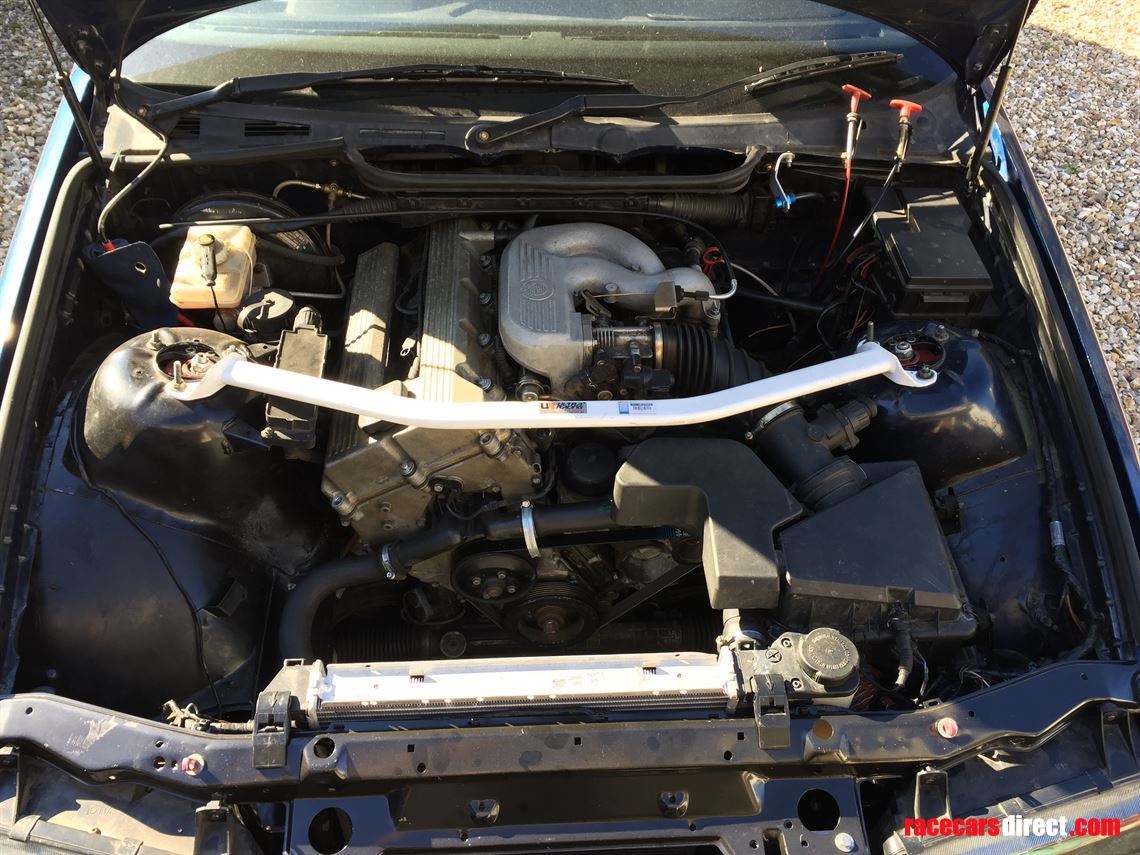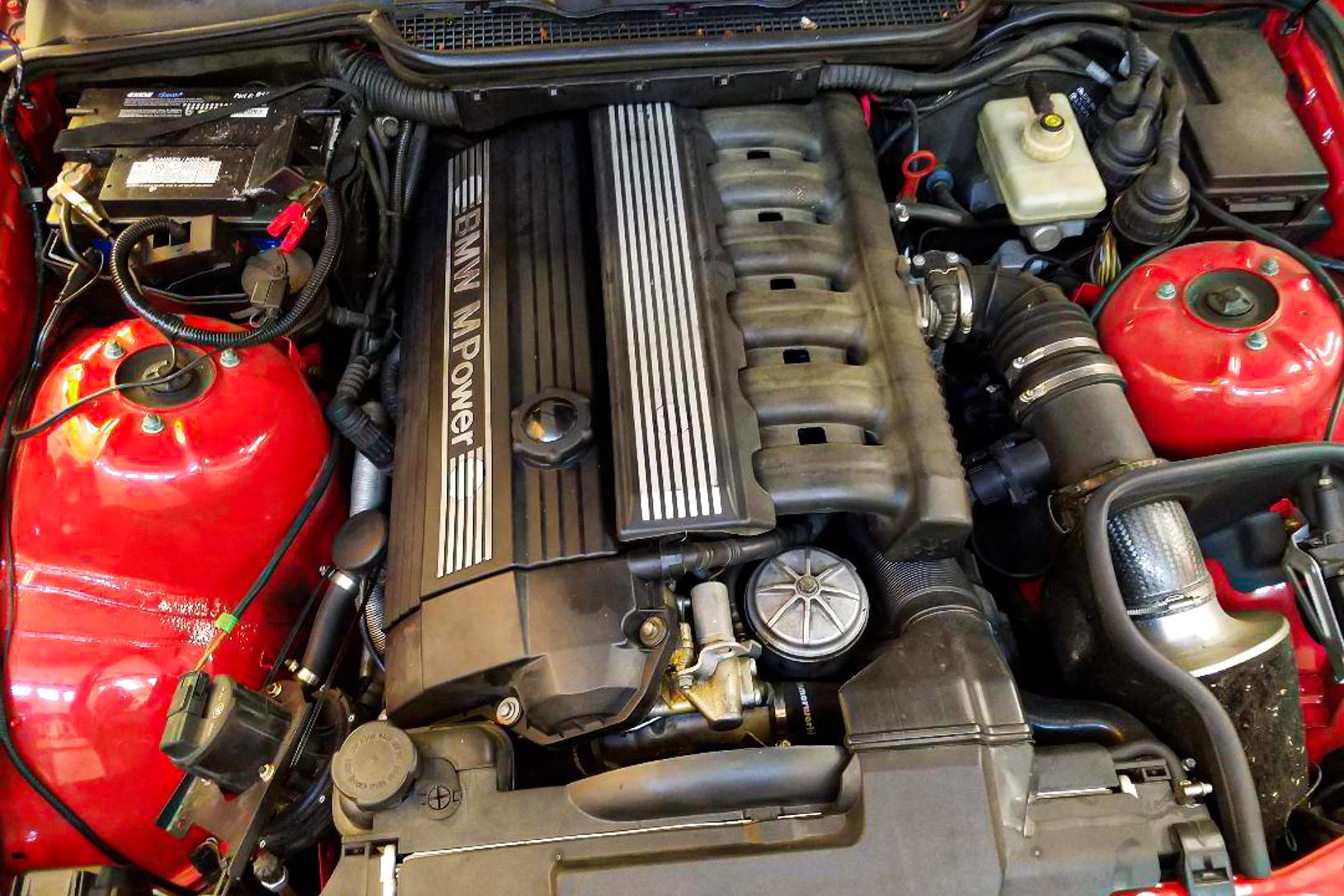BMW 318ti: Efficiency Specs and Qualities Explained
BMW 318ti: Efficiency Specs and Qualities Explained
Blog Article
Key Functions to Seek When Getting an Engine for Automotive Applications
When thinking about the purchase of an engine for vehicle applications, a number of crucial attributes warrant careful examination to make certain ideal efficiency and capability. From power and efficiency abilities to fuel effectiveness, sturdiness, and adherence to emissions standards, each aspect plays an important duty in establishing the engine's viability for specific vehicle needs.
Power and Efficiency
When picking an automotive engine, customers focus on power and performance to make sure ideal driving experience and efficiency. The power outcome of an engine, commonly determined in horsepower (HP) or kilowatts (kW), dictates the velocity, leading speed, and total capabilities of a vehicle. Greater power rankings usually cause quicker acceleration and better performance, particularly throughout surpassing or carrying hefty loads. Efficiency, on the various other hand, encompasses a more comprehensive spectrum of attributes, consisting of fuel efficiency, emissions, integrity, and total driving characteristics. A well-performing engine not just provides power effectively yet additionally runs efficiently across different rate varieties and driving conditions.
In addition, aspects such as engine turbocharging, crossbreed, and variation technologies play substantial duties in improving both power and efficiency degrees. Ultimately, picking an engine that offers a potent combination of power and efficiency makes sure a enjoyable and reliable driving experience.
Fuel Effectiveness
Maximizing fuel performance is an extremely important consideration for consumers when examining automobile engine choices. The effectiveness of an engine straight influences operating expense and ecological impact. One essential aspect affecting fuel effectiveness is the engine's design and innovation. Modern engines with attributes like straight fuel shot, turbocharging, and variable valve timing can significantly enhance fuel efficiency by enhancing combustion processes and reducing power loss. Additionally, the overall weight of the engine and automobile, along with the aerodynamics, play important functions in identifying fuel consumption.

Durability and Integrity
Attaining long-lasting performance and reputable operation is necessary for customers evaluating the durability and dependability of auto engines. When thinking about an engine for automobile applications, longevity refers to the engine's ability to withstand wear, tension, and harsh operating problems over an extended duration. Reliability, on the various other hand, implies that the engine can regularly perform its desired feature without unexpected break downs or failings.
Customers need to search for engines created with top notch materials and accurate design to make certain durability. Elements such as crankshafts, bearings, and pistons need to be long lasting to manage the engine's power output without premature wear. Additionally, engines outfitted with sophisticated cooling systems, efficient lubrication, and durable purification systems have a tendency to display greater degrees of dependability.
Regular maintenance and adherence to supplier recommendations are likewise critical consider preserving an engine's toughness and reliability. By following upkeep timetables, using suggested liquids, and dealing with any concerns without delay, consumers can optimize the life expectancy and efficiency of their auto engines. Inevitably, focusing on toughness and integrity in engine selection can result in a more gratifying ownership experience with less unexpected interruptions.
Exhausts Conformity
Guaranteeing conformity with emissions guidelines is a crucial facet of assessing automobile engines for eco conscious consumers. With enhancing issues about air high quality and environmental influence, stringent emissions look at these guys criteria have actually been established internationally to lower damaging contaminants released into the ambience. When purchasing an engine for auto applications, it is important to consider its exhausts conformity to reduce the carbon impact and abide by lawful demands.
Modern engines are geared up with sophisticated discharge control innovations such as catalytic converters, exhaust gas recirculation (EGR) systems, and discerning catalytic reduction (SCR) to lower damaging exhaust gases like nitrogen oxides (NOx), carbon monoxide gas (CARBON MONOXIDE), and hydrocarbons (HC) These systems play a critical duty in making sure that the engine meets the specified emissions standards and operates within allowable limitations.

Cost-effectiveness
When taking into consideration auto engine acquisitions, assessing cost-effectiveness is extremely important for customers seeking both efficiency and worth. Cost-effectiveness in engine acquisition entails even more than just the preliminary purchase cost. It encompasses the total costs connected to maintenance, fuel intake, and possible fixings over the engine's life expectancy. Deciding for an engine that supplies a balance in between long-lasting cost savings and upfront costs can result in considerable advantages for the consumer.
One key facet of cost-effectiveness is fuel efficiency. Engines that are designed to make the most of fuel economy can bring about considerable savings gradually, specifically for people who drive regularly or over lengthy ranges. Additionally, taking into consideration the schedule and affordability of spare parts and servicing can add to the overall cost-effectiveness of an engine. Guaranteeing that maintenance and repairs are accessible and affordable can stop unanticipated monetary burdens down the line.

Verdict
To conclude, when purchasing an engine for automobile applications, it is crucial to think about essential features such as power and efficiency, fuel integrity, efficiency and longevity, emissions compliance, and cost-effectiveness. These variables are vital in ensuring that the engine satisfies the needs of the automobile and operates effectively in different driving conditions - bmw 318ti. Making an informed choice article based upon these requirements will eventually cause a successful and reliable automobile engine purchase
From power and efficiency capacities to fuel resilience, effectiveness, and adherence to emissions criteria, each facet plays a crucial role in establishing the engine's suitability for particular auto needs. Engines developed to run on alternate fuels such as electric power, hybrid systems, or biofuels can offer better gas economic climate and reduced emissions compared to standard fuel or diesel engines. Consumers must meticulously consider the gas performance scores and technologies included into automotive engines to make educated acquiring decisions that line up with their priorities for price savings and sustainability.
When taking into consideration an engine for automobile applications, resilience refers to the engine's capacity to withstand wear, stress and anxiety, and extreme operating problems over a prolonged duration.In verdict, when buying an engine for auto applications, it is important to take into consideration essential functions such as power and efficiency, fuel reliability, efficiency and durability, exhausts conformity, and cost-effectiveness.
Report this page